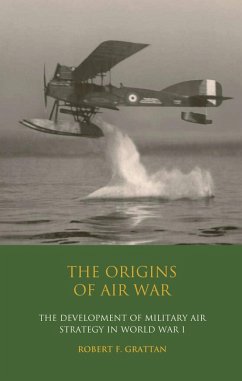Air power has come to be seen as a country's first line of defence; in the First World War views were vastly different. Aircraft were a novelty not always welcomed by the traditionalist military, and there were no tactics, doctrine or strategies available for the deployment of air power. Yet, within four years, proponents of the new force were making claims, often extravagant, of what aircraft could achieve. Here Robert Grattan traces the remarkable history of the emergence of air power as a force to reckon with, and its dramatic impact on military strategy. He discusses the details of aircrafts, their engines and manufacture - including the Fokker, Bristol Fighter, the Zeppelin and the DH2 - the weaponry and prominent figures, such as Albert Ball and Werner Voss. "The First Air War" is indispensable for military historians, aviation and military enthusiasts as well as those interested in strategy.
Dieser Download kann aus rechtlichen Gründen nur mit Rechnungsadresse in A, B, BG, CY, CZ, D, DK, EW, E, FIN, F, GR, HR, H, IRL, I, LT, L, LR, M, NL, PL, P, R, S, SLO, SK ausgeliefert werden.

